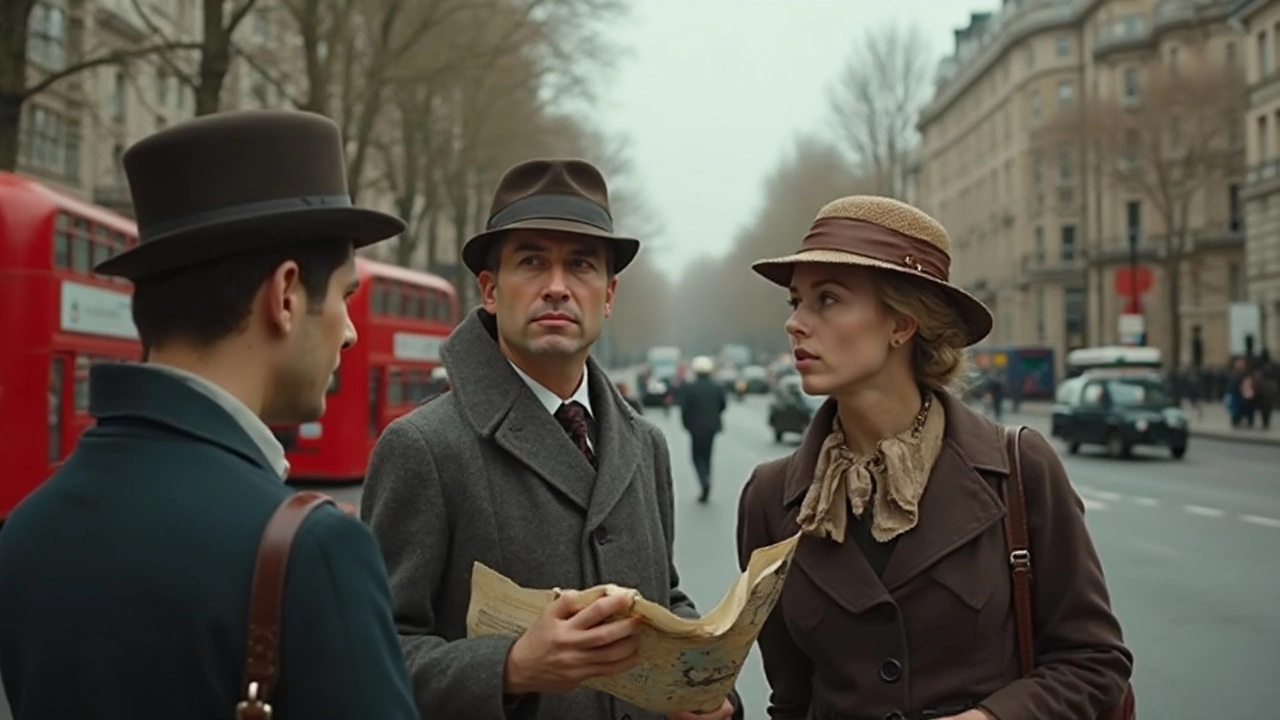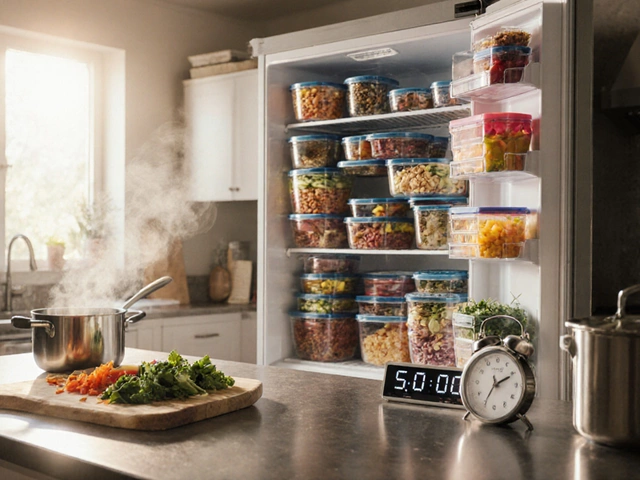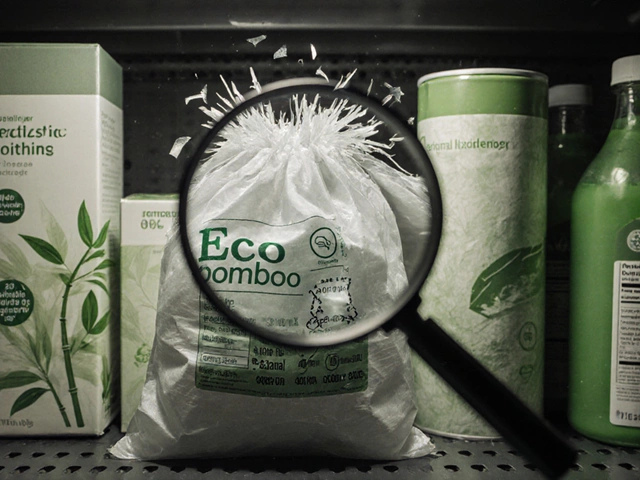Stroll into a pub in London, say 'bloody' loudly, and you might notice a few raised eyebrows. It’s a word that sounds almost harmless to outsiders but carries a weird weight in England. If you’re packing your bags for the UK, knowing what rolls off the tongue—and what might get you a disapproving look—can make a big difference.
So, why does 'bloody' stir up so much fuss? The answer sits between history, old religious arguments, and class snobbery. For some Brits, it still feels like a swear word, even if you hear teenagers muttering it out of earshot from their nan. It's one of those quirky English habits that surprises travelers every year.
If you want to blend in and avoid those awkward moments, stick around. We'll get into the real story behind 'bloody', why your British friends might cringe, where you probably shouldn’t say it, and a few other innocent-seeming words that can get you in trouble. Wouldn’t you rather know what’s safe to say over fish and chips before you order?
- Where 'Bloody' Came From
- How Bad Is 'Bloody' Really?
- When to Avoid Using It
- Other Words That Might Surprise You
Where 'Bloody' Came From
Ever wonder how bloody got such a bad rap in England? The word’s history is actually a jumble of religion, class, and wild guesses. It’s not like it started out as a four-letter word—if anything, it got spicy over time. Let’s clear up the rumors and walk through the facts.
First up, way back in the 17th and 18th centuries, bloody wasn’t a big deal. It sort of meant the same as “very” or “really”—more like a rough substitute for “darned” in American English now. But then, things got weird. There are a couple of theories about what changed:
- Some historians say it came from “by Our Lady,” a reference to the Virgin Mary. Swearing by religious figures was considered pretty shocking then, so it became offensive.
- Others think it got attached to rowdy aristocrats called “bloods” who were known for wild parties and reckless behavior. If someone acted “bloody,” it meant they were acting like one of them.
By the late 1800s, bloody picked up a bad reputation. Newspapers wouldn’t print it and teachers definitely didn’t want to hear it in the classroom. In fact, when “bloody” was said on stage in 1914’s “Pygmalion,” several people in the audience actually fainted—no joke!
Here’s a quick look at how the view of bloody shifted over the centuries:
| Period | How 'Bloody' Was Seen |
|---|---|
| 1600s | Mostly harmless |
| 1700s | Getting edgy (religious or rowdy roots) |
| 1800s | Considered a proper swear word |
| 1900s | Still shocking, slowly becoming milder |
| 2000s+ | Mild but still frowned on, especially around older folks |
So when you hear someone call bloody the UK’s mildest swear, know that it’s carried a lot of baggage through history. If you drop it in front of someone’s grandma, you might still get a dirty look—thanks to centuries of Brits trying (and failing) to clean up their language.
How Bad Is 'Bloody' Really?
The word bloody might sound mild if you grew up outside the UK, but for Brits, its power depends a lot on age, region, and who’s around you. Up until a few decades ago, you could easily get scolded for dropping a 'bloody' in any polite conversation. In fact, back in the early 1900s, saying bloody on stage was enough to cause a nationwide scandal, like when it popped up in the play "Pygmalion" in 1914 and made headlines for being shockingly rude.
These days, the shock factor has faded some, especially among younger people. For example, my friend Helen’s kids throw 'bloody' around like confetti, but their grandmother still gets flustered every time they say it. The BBC, Britain’s main broadcaster, used to flat out ban the word from TV and radio. Now, you’ll catch it in primetime shows, though it’s still rare to hear from political leaders or on kids’ programs.
Here’s a quick look at how bloody sits compared to other British swear words:
| Word | Shock Level (1-5) | Common Usage |
|---|---|---|
| Bloody | 2 | Frequent, mild to moderate |
| Damn | 1 | Mild, not really shocking |
| Bollocks | 3 | Common, moderate shock |
| The F-word | 5 | Very shocking in public |
Still, using bloody in the wrong setting can come off as crass, especially around older folk or during formal events. In a business meeting or a fancy gathering, just swap it for 'very' or 'really' to play it safe. At the pub with friends, you’ll probably get a laugh.
Quick tip: if you’re traveling with kids and want to keep things family friendly, maybe avoid bloody out of habit. Casual doesn’t always mean harmless in the UK, and it’s good to know your audience.

When to Avoid Using It
The way Brits react to bloody depends on age, background, and where in the UK you are. Older generations and those from certain regions can still see the word as brash or rude. Drop it in a business meeting or a formal dinner, and you’ll probably get a look—especially if your host is over fifty.
Teachers, retail workers, and anyone dealing with the public are often told not to use bloody at work, just to play it safe. The BBC, for years, banned the word on air. Today, it pops up more often in TV and movies, but in real life, you’re better off saving it for close friends.
- Don’t say it around kids: Parents and teachers still tell children off for using bloody because it’s seen as swearing. If you’re chatting with families, especially in rural England, keep your language clean.
- Skip it with strangers: Dropping a bloody into a conversation with someone you don’t know well can sound pushy or disrespectful—especially with older folks or anyone higher up in a chain of command.
- Avoid it in interviews and on the job: Using UK slang like this in a job interview or professional email can hurt your first impression.
- Places of worship: Definitely not a good spot for even mild British culture swear words. Respect the setting, even if your British mates are more relaxed about it.
An interesting point: a 2023 survey by YouGov showed that 44% of Brits over age 60 still consider bloody a swear word, while only 18% of those under 30 agree. So while attitudes are shifting, the old feelings about the word haven’t disappeared completely.
| Place | Risk of Offence |
|---|---|
| Formal workplace | High |
| School/nursery | High |
| Pub (with friends) | Low |
| Interview | Very High |
| Home (with family) | Depends on family! |
The bottom line: if you’re not sure, leave bloody out. When in doubt, watch how the locals speak. There’s no shame in playing it safe until you know your crowd.
Other Words That Might Surprise You
If you think bloody is the only tricky word in the UK, think again. There are other words and phrases that sound innocent but can stir up a reaction—or even spark confusion. Some can get a laugh, some might get a frown, and a few could land you in an awkward spot if you use them wrong. Here’s what you should watch out for as a traveler:
- Pants: In the UK, 'pants' means underwear. So, if you say, "I love your pants," people might raise an eyebrow. If you want to compliment someone’s trousers, just call them trousers.
- Fag: This is British slang for a cigarette, totally different from its meaning in American English. Don’t use it unless you’re in a context where everyone knows what you mean.
- Rubber: British folks say ‘rubber’ for what Americans call an eraser. So if you ask a friend for a rubber in class, no one will blink, but a tourist might giggle.
- Knickers: These are women’s underwear. Saying "Don’t get your knickers in a twist," is a light way to say “don’t get upset,” but don’t use it out of context.
- Bugger: This word is mild but still a bit vulgar for older Brits. You might hear "bugger off" in movies, but it’s not something most people want to hear at work or in polite company.
Some words even change their punch based on what part of the UK you’re in. For example, calling someone ‘cheeky’ can be funny, but in the wrong tone, it comes across as disrespectful. And the casual 'loo' for bathroom? Totally fine in most places, but in some posh settings, they’d rather you say ‘lavatory.’
Take a look at how some innocent words take on surprising new meanings over the pond:
| Word | UK Meaning | US Meaning |
|---|---|---|
| Chips | French fries | Potato chips |
| Boot | Car trunk | Footwear |
| Biscuit | Cookie | Bread roll |
| Jumper | Sweater | Dress or pinafore |
The best thing to do? If in doubt, listen more than you speak, and remember, the British love a good laugh about language mix-ups. Ask if you’re not sure—usually, people find it charming when a traveler wants to get the local lingo right.





